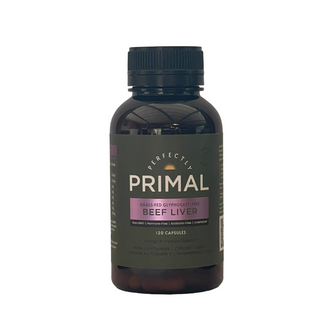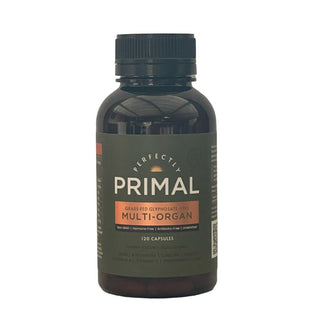Categories
How Herbicides Impact Human Health
Herbicides, the chemicals we use to control unwanted plants, have become a topic of significant concern due to their potential impact on human health. In this article, we delve into the most commonly used herbicides: glyphosate, dicamba, diquat, and paraquat. By exploring their uses, mechanisms, and potential risks to human health, we aim to raise awareness and advocate for caution and stricter regulatory measures.
1. Glyphosate
Overview:
Glyphosate is the active ingredient in Roundup, one of the most widely used herbicides globally. It is a broad-spectrum herbicide that kills most plants by inhibiting a specific enzyme essential for plant growth.
Health Risks:
Glyphosate, the herbicide at the centre of controversy, has been linked to a range of health issues that should not be taken lightly. These include:
- Cancer: The International Agency for Research on Cancer (IARC), a part of the World Health Organization (WHO), classified glyphosate as "probably carcinogenic to humans" in 2015. This classification was based on limited evidence of human carcinogenicity and sufficient evidence in animals.
- Endocrine Disruption: Glyphosate may act as an endocrine disruptor, interfering with hormonal functions. Studies suggest it could affect reproductive health and development.
- Kidney and Liver Damage: Chronic exposure to glyphosate has been associated with liver and kidney damage. A study published in "Environmental Health" found that individuals with higher glyphosate levels had more severe liver damage.
- Gut microbiome disruption: Glyphosate disrupts the gut microbiome by killing beneficial bacteria, leading to imbalances that can cause digestive issues, weaken immunity, and potentially lead to chronic health problems such as inflammation and metabolic disorders.
References:
1. [IARC Monographs on the Evaluation of Carcinogenic Risks to Humans](https://www.iarc.fr/)
2. [Environmental Health Perspectives](https://ehp.niehs.nih.gov/)
3. [Environmental Health Journal](https://ehjournal.biomedcentral.com/)
4. Roundup lawsuits - EHN. https://www.ehn.org/glyphosate-monsanto-bayer-2654266621/roundup-lawsuits
2. Dicamba
Overview:
Dicamba is a selective herbicide used to control broadleaf weeds. It is often used in combination with other herbicides to enhance effectiveness.
Health Risks:
Dicamba's volatility and tendency to drift have made it a concern. Its health impacts include:
- Respiratory Issues: Exposure to dicamba can cause respiratory problems, including difficulty breathing and respiratory tract irritation.
- Skin and Eye Irritation: Dicamba can cause severe skin and eye irritation. Prolonged exposure may lead to more serious conditions, such as chemical burns.
- Potential Carcinogen: Some studies suggest a potential link between dicamba exposure and increased cancer risk, although more research is needed to confirm this association.
References:
4. [National Institutes of Health (NIH)](https://www.nih.gov/)
5. [U.S. Environmental Protection Agency (EPA)](https://www.epa.gov/)
6. [Toxicology and Applied Pharmacology](https://www.journals.elsevier.com/toxicology-and-applied-pharmacology)
3. Diquat
Overview:
Diquat is a non-selective contact herbicide used to control aquatic weeds and in pre-harvest desiccation of crops.
Health Risks:
Diquat is known for its high toxicity. Key health concerns include:
- Respiratory and Gastrointestinal Damage: Inhalation or ingestion of diquat can cause severe damage to the respiratory and gastrointestinal systems, leading to symptoms such as difficulty breathing, nausea, and vomiting.
- Eye Damage: Diquat exposure can result in severe eye injuries, including cataracts and blindness.
- Neurological Effects: Some studies have suggested that diquat may cause neurotoxic effects, potentially leading to long-term neurological damage.
References:
7. [Centers for Disease Control and Prevention (CDC)](https://www.cdc.gov/)
8. [National Pesticide Information Center (NPIC)](http://npic.orst.edu/)
9. [NeuroToxicology](https://www.journals.elsevier.com/neurotoxicology)
4. Paraquat
Overview:
Paraquat is a highly toxic herbicide that controls a wide range of weeds. Due to its extreme toxicity, it is banned in several countries.
Health Risks:
Paraquat is one of the most dangerous herbicides in use. Its health impacts include:
- Fatal Poisoning: Ingestion of even a tiny amount of paraquat can be fatal. It causes severe damage to the lungs, liver, and kidneys.
- Parkinson's Disease: Studies have shown a link between paraquat exposure and an increased risk of developing Parkinson's disease. The chemical's neurotoxic effects are believed to contribute to this risk.
- Respiratory Failure: Paraquat can cause severe and irreversible lung damage, leading to respiratory failure and death.
References:
10. [World Health Organization (WHO)](https://www.who.int/)
11. [Journal of Occupational and Environmental Medicine](https://journals.lww.com/joem/)
12. [American Journal of Respiratory and Critical Care Medicine](https://www.atsjournals.org/journal/ajrccm)
13. The Growing Tide of Paraquat Lawsuits: A Comprehensive Update. https://www.lgkg.com/blog/2023/november/the-growing-tide-of-paraquat-lawsuits-a-comprehe/
Conclusion
While glyphosate, dicamba, diquat, and paraquat play a part in modern agriculture, their potential risks to human health are a serious concern. The evidence linking these chemicals to health issues such as cancer, respiratory problems, and neurological damage underscores the urgent need for caution and stricter regulatory measures. By reducing exposure through protective measures and supporting organic and sustainable farming practices, we can help mitigate these risks for individuals.
Empowering ourselves with the knowledge of the dangers these herbicides pose is crucial. It enables us to make informed decisions about their use and advocate for safer alternatives, thereby protecting human health and the environment.
For these reasons, we created our own brand of organ supplements that are free from all four toxic herbicides mentioned above. In our range 'Perfectly Primal' you will not find any glyphosate, dicamba, diquat or paraquat but also no healvy metals such as arsenic, cadmium, lead or mercury.
We also can assure you of no GMOs, antibiotics, hormones or gluten. Only purity and the highest quality organ supplements from happy New Zealand Grass-fed cows.






